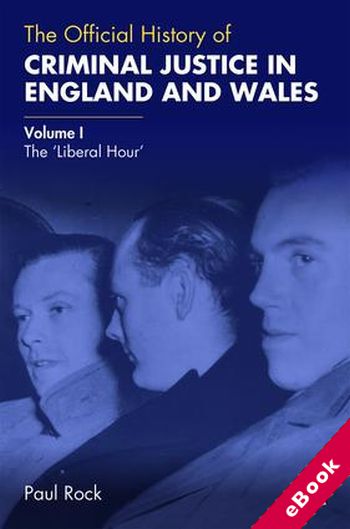
The device(s) you use to access the eBook content must be authorized with an Adobe ID before you download the product otherwise it will fail to register correctly.
For further information see https://www.wildy.com/ebook-formats
Once the order is confirmed an automated e-mail will be sent to you to allow you to download the eBook.
All eBooks are supplied firm sale and cannot be returned. If you believe there is a fault with your eBook then contact us on ebooks@wildy.com and we will help in resolving the issue. This does not affect your statutory rights.
Volume I of The Official History of Criminal Justice in England and Wales frames what was known about crime and criminal justice in the 1960s, before describing the liberalising legislation of the decade.
Commissioned by the Cabinet Office and using interviews, British Government records, and papers housed in private, and institutional collections, this is the first of a collaboratively written series of official histories that analyse the evolution of criminal justice between 1959 and 1997. It opens with an account of the inception of the series, before describing what was known about crime and criminal justice at the time. It then outlines the genesis of three key criminal justice Acts that not only redefined the relations between the State and citizen, but also shaped what some believed to be the spirit of the age: the abolition of capital punishment, and the reform of the laws on abortion, and homosexuality. The Acts were taken to be so contentious morally and politically that Governments of different stripes were hesitant about promoting them formally. The onus was instead passed to backbenchers, who were supported by interlocking groups of reformers, with a pooled knowledge about how to effectively organise a rhetoric that drew on the language of utilitarianism, and the clarity and authority of a Church of England. This came to play an increasingly consequential and largely unacknowledged part in resolving what were often confusing moral questions.
This book will be of much interest to students of criminology and British history, politics and law.